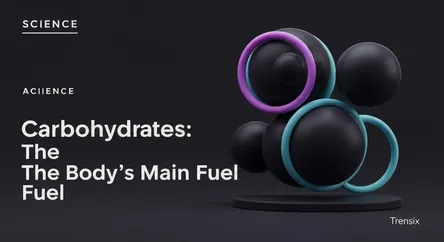Science
Carbohydrates: The Body's Main Fuel

Explore carbohydrates, the essential macronutrient that fuels our bodies. Learn the difference between simple and complex carbs and their role in health.
What is it?
Carbohydrates, often called "carbs," are a primary macronutrient and the body's main source of energy. Found in foods like bread, pasta, fruits, and vegetables, they are sugar molecules that your body breaks down into glucose. Carbohydrates are generally classified into two main types: simple and complex. Simple carbs are sugars like fructose and sucrose, which provide quick energy. Complex carbs, including starches and fiber, are longer chains of sugar molecules that take more time to digest, providing a more sustained release of energy.
Why is it trending?
Carbohydrates are a constant topic of discussion due to popular diet trends like the ketogenic (keto) and Atkins diets, which significantly restrict carb intake. This has created a public debate around "good carbs" versus "bad carbs," leading many people to scrutinize their food choices. The conversation is driven by a growing interest in nutrition, weight management, and athletic performance, with people seeking to understand how different types of carbohydrates impact their overall health, from energy levels to chronic disease risk.
How does it affect people?
Carbohydrates are vital for human function. After digestion, they become glucose in the bloodstream, providing immediate energy for cells, tissues, and organs, especially the brain. The type of carbohydrate consumed has different effects. Complex carbs, rich in fiber, support digestive health and provide lasting energy, helping to stabilize blood sugar levels. Conversely, a high intake of refined simple carbs can lead to rapid blood sugar spikes and crashes, and over time may contribute to health problems such as obesity, type 2 diabetes, and heart disease. A balanced intake is key to maintaining energy and well-being.